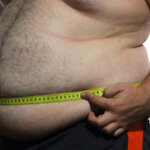
Medicine stopped being symptom-based over 50 years ago but psychology still uses it. Little is known about why or how the brain works the way it does, much less personality variation, so if a psychological therapy works, it works.
Acupuncture is touted by alternative medicine practitioners as being effective for a few ailments and it is - often up to 29 percent of the time. When the issue is psychological the cure can be also and so a new epidemiological analysis from China compared the clinical efficacy of acupuncture/electroacupuncture with oral antidepressants in improving depressive…



